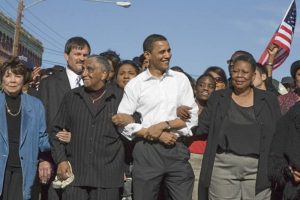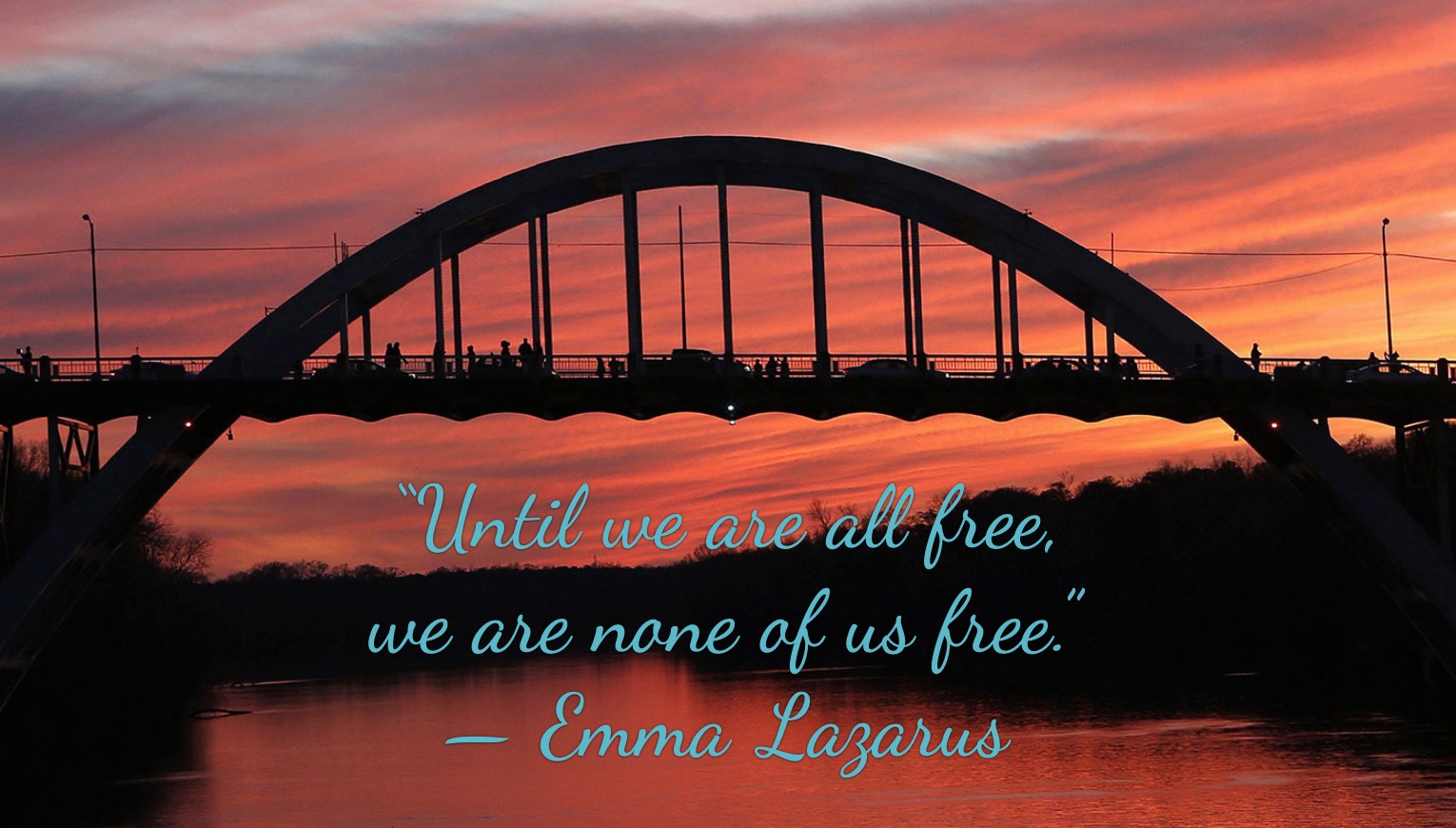“It’s like a tree with branches, that if you cut off one branch, don’t mean the damn tree going to die. It’s just going to grow another branch. And that’s what’s happening. We need to find the root of all this.” – Joanne Bland, co-founder of the National Voting Rights Museum in Selma, Alabama
I’ve just finished listening to White Lies, an excellent story of investigative journalism by two white Alabamians into the case of Rev. James Reeb, a Unitarian minister who in March 1965 left his wife and four young children at home in Boston, to travel to Selma in response to Martin Luther King’s appeal for clergymen to come and support the cause after the unprovoked Bloody Sunday attack on nonviolent activists on Edmund Pettus Bridge. Less than 24 hours after arriving in Selma, Reeb was leaving a restaurant with two other clergymen (all of them white sympathisers with the civil rights cause) when he was set upon by a group of four or five white men, one of whom hit him hard in the side of the head with a billy club, with a sound that reverberated down the street. A melée ensued, in which all three clergymen were beaten by this group of white locals. Reeb died two days later as a result of his head injury. Three white men were brought to trial, but were acquitted by an all-white jury.
 White Lies follows Chip Brantley and Andrew Beck Grace as they spend several years trying to find out what really happened. They are relentless in their pursuit of the truth, rummaging around in sheds of old files, knocking on doors, interviewing anybody who will speak to them (and many people won’t). Nearly 55 years after the fact, the trail couldn’t be much colder, and many potential witnesses are dead, but their doggedness pays off.
White Lies follows Chip Brantley and Andrew Beck Grace as they spend several years trying to find out what really happened. They are relentless in their pursuit of the truth, rummaging around in sheds of old files, knocking on doors, interviewing anybody who will speak to them (and many people won’t). Nearly 55 years after the fact, the trail couldn’t be much colder, and many potential witnesses are dead, but their doggedness pays off.
Whether you are in it for the racial issues it raises, or because you like a good murder mystery, or both, It’s well worth listening to all seven episodes, or reading the transcripts if you prefer, but the fully produced audio production really is worth experiencing – hearing the voices and accents of the interviewees brings it vividly to life in a way that the written word simply can’t.
I don’t want to say too much more about it, for fear of spoiling it for you, but I will just explain what inspired the name of the series. Almost immediately after Reeb’s murder, a story started that he had not died of the injuries caused by the initial attack, but had been killed in the back of the ambulance while on his way to the nearest neurological unit, in Birmingham, Alabama. The lie suggested that the civil rights movement needed a white martyr (because a lost white life would get more publicity than a lost black life), and they seized their opportunity with the already-injured Reeb.
 The convenient lie quickly gained traction, overriding the inconvenient truth of the racism that ran so deep through white Alabamian society. Even witnesses, who had seen the truth with their own eyes, lied to the authorities out of fear of the consequences if they told what had really happened.
The convenient lie quickly gained traction, overriding the inconvenient truth of the racism that ran so deep through white Alabamian society. Even witnesses, who had seen the truth with their own eyes, lied to the authorities out of fear of the consequences if they told what had really happened.
This is one story, about one incident, that killed one man, many decades ago. But the uncomfortable question is still with us, whether we relate it to race, or economic inequality, or environmental destruction:
What are the lies we tell ourselves in order to sleep at night? What untruths are we choosing to believe, because they enable us to maintain the perception of ourselves as good people? If we truly are good people, what do we need to open our eyes to, and be willing to embrace the discomfort, and have the brave conversations, and be open to listening and learning, in order to heal the wounded human psyche?
These aren’t just rhetorical questions. Please really think about them, and read about the experiences of others who may not share your skin colour, or educational advantages, or economic comfort. I’m aware that I’m asking you to get outside your comfort zone, and you may not appreciate that (and may not appreciate me for inviting you to do it). But this really, really matters.
“Do not be a silent witness. Just do it. You have to be the one.” — Joanne Bland

Other Stuff:
A quick tech question: a correspondent has said that the font of my newsletter appears so small on her phone that it is difficult to read. Are other people having that same problem?

